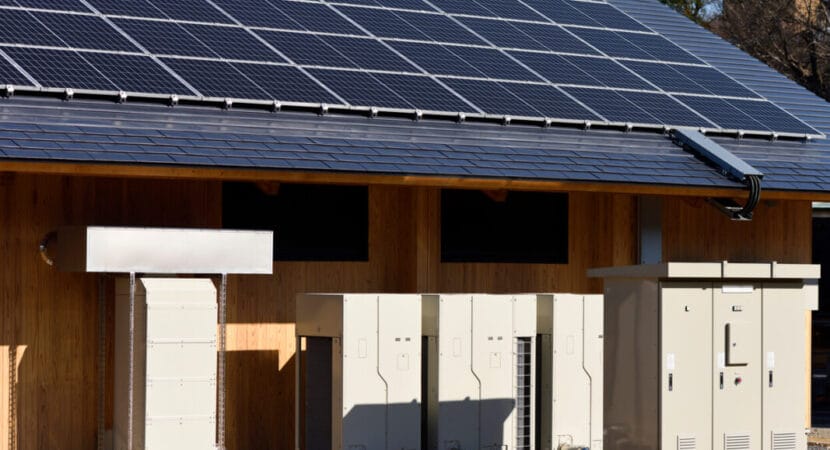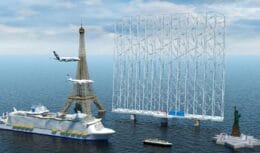
In case of power outage. They provide autonomy and practicality, ensuring the continuous operation of electrical equipment and appliances, especially in regions prone to frequent blackouts. Furthermore, they contribute to the preservation of the environment, using solar energy as a renewable and sustainable source.
An additional advantage is that in areas where the cost of energy varies throughout the day, consumers can use stored energy during peak periods when energy is more expensive, which helps reduce overall electricity costs.
“However, it is important to keep in mind that weather conditions, such as strong winds, can impact the efficiency of solar panels. It is crucial to consider the risks and costs associated with this option”, says Cláudio Sales, president of Instituto Acende Brasil.
According to the EcoFlow representative, the effective management of already used batteries presents a significant difficulty, requiring a specific structure for recycling and appropriate disposal. 'The lack of affordable financing alternatives may present an obstacle to large-scale implementation,' he notes.
Even so, solar systems with batteries represent the least harmful option for the environment and the batteries are simple to install. The trend is towards a reduction in costs in the coming years.
Comparison between generators and distributed generation with Batteries
There are more options on the market for purchasing generatorsHowever, this alternative can be expensive and harmful to the environment, in addition to causing noise emissions. Additionally, some models do not turn on immediately.
On the other hand, distributed generation with Batteries requires space to install photovoltaic panels, which are typically placed on roofs. Furthermore, battery usage is necessary to ensure stable power supply. the energy. Without storage, the user of distributed generation continues to depend on the availability of the distributor's system, since the generation of the energy solar energy is not constant due to climatic conditions. **It is important to note that distributed generation does not generate the energy solar all the time.**
In the year 2022, the average value of a the energy solar with Batteries, aimed at residential consumers or small commercial establishments in Brazil, ranged between R$15.000 and R$30.000 per kW installed, according to information from Christian Barrios, the commercial manager of the company EcoFlow, specialized in offering energy storage systems. the energy.
There was a reduction in prices. In the United States, it is possible to find a domestic battery with a capacity of 200 watts for less than US$400 (R$2). A battery capable of storing up to 3 watts costs approximately US$5 (R$25).
With regard to generators, it is common to find alternatives for rental, with a rental price of around R$2.000 for approximately five hours.
In relation to distributed generation, currently in Brazil, the cost for installing 1 kilowatt-hour (kWh) is in the range of R$4.000. The average consumption of a Brazilian family is 6 kW, so the average cost of a system that serves four people is approximately R$24.000 for installation. In addition to this cost, there is also the need to install storage.
It is essential to highlight that this alternative is only effective in preventing interruptions in the electricity supply when combined with the storage capacity of the energy. A possible solution is the use of a conventional battery, which allows the storage of the energy generated during sunny periods to be used later.
According to Ângela Gomes, director of the consultancy PSR, the companies distributing the energy can employ these alternatives in places where the availability of the energy is essential, like schools and hospitals.
Options to reduce dependence on energy distributors the energy
Several alternatives are used by consumers to reduce dependence on supply from food distributors. the energy. One of the most popular options is the use of generators, which can run on diesel oil, gasoline or natural gas. This solution is widely adopted in places such as hospitals and businesses, as an emergency when supply from the distributor fails.
Another growing alternative is the installation of distributed generation systems with Batteries. In this model, consumers are able to generate their own the energy electricity, with systems that can reach up to 5 megawatts (MW). The most common and accessible technology for this is photovoltaic solar generation. This option has become popular due to its efficiency and sustainability.
The panorama caused difficulties in the standard of living, making it difficult for essential appliances, such as refrigeration, to operate.generators and elevators. Furthermore, they result in financial losses, as electrical devices can be damaged by power fluctuations. the energy and many businesses depend on electricity to operate.
The tendency is for extreme weather episodes to become even more common, which will have significant implications for the electrical system. Experts indicate that the networks of distribution companies are more susceptible, due to their extensive geographic coverage.
To prevent the possibility of being affected by eventualities in the supply of the energy, there are two main options available to consumers in Brazil today: the use of generators or the installation of photovoltaic solar energy, in distributed generation format, with Batteries.
Recent episodes of cuts in the supply of the energy Due to weather conditions, a large number of people were left without electricity for several days, in some situations exceeding five days, in the country's metropolises, such as São Paulo.
Source: EPBR











